Imagine standing at the crossroads of your golden years, with the glittering Vancouver skyline at your back.
You're considering two paths: downsizing your home or opting for a reverse mortgage. Each route offers its own set of benefits and drawbacks, but which one is the best fit for your lifestyle and financial future?
The answer isn't as straightforward as you might think, and it's crucial to weigh all the facts and figures before making such a life-altering decision.
Let's demystify these options, shall we?
Key Takeaways
- The Vancouver real estate market provides investment opportunities in upscale properties and rentals, affected by various factors like supply, demand, and investors.
- Downsizing can reduce living costs and promote minimalist living, but requires careful planning to ensure it's advantageous.
- Reverse mortgages offer homeowners a chance to access equity without immediate repayment, debunking myths such as bank ownership after signing up.
- Making informed retirement decisions involves understanding the financial and emotional implications of downsizing and reverse mortgages, and consulting with a financial advisor.
Understanding Vancouver's Real Estate Market
To navigate Vancouver's real estate market maze, it's crucial that you first understand the dynamics at play, from fluctuating prices to the influence of local and international investors. The city's real estate market is marked by its volatility, with prices swinging wildly in response to factors such as changes in supply and demand, interest rates, and economic conditions.
Market trends in Vancouver are shaped by a variety of factors. The most significant of these is the city's population growth, which is fueling demand for housing and pushing up prices. At the same time, the supply of new homes is limited by the city's geographical constraints, which include mountains and ocean. These factors together create a market characterized by high prices and strong competition among buyers.
Investment opportunities in Vancouver's real estate market are varied. For those with deep pockets, the high-end market offers the possibility of significant returns, given the city's status as a desirable place to live and invest. For less affluent investors, there are opportunities in the city's burgeoning rental market, which is being driven by the high cost of home ownership.
In short, if you're looking to invest in Vancouver's real estate market, it's essential that you understand the market trends and the opportunities they present. This understanding will help you make informed decisions and maximize your return on investment.
Decoding the Concept of Downsizing
Despite the high prices in Vancouver's real estate market, downsizing presents an attractive option for those seeking to optimize their living situation, reduce expenses, or simplify their lifestyle. However, it's not a decision to be taken lightly. There are several factors you need to consider:
- Emotional Impact: Downsizing your home means letting go of a place filled with memories. It can be an emotional journey, but it also presents a chance to declutter and prioritize what truly matters to you.
- Financial Implications: Downsizing can significantly reduce your expenses. From lower mortgage payments, property taxes, and maintenance costs, it can offer substantial financial relief.
- Minimalist Living: A smaller home encourages a simpler lifestyle. It's about learning to live with less and finding joy in simplicity.
Downsizing is more than just moving to a smaller home. It's a lifestyle change that has the potential to positively affect your emotional wellbeing and financial health. It encourages minimalist living, freeing you from the burdens of a larger home. So, while it's a significant decision, with careful thought and planning, it could be the best move for you.
What Is a Reverse Mortgage?
While downsizing could be a practical decision for some, others might find a reverse mortgage to be a beneficial financial strategy. This is especially true for those who wish to stay in their homes while still accessing its equity. So, what is a reverse mortgage? It's a loan that allows you to transform a portion of your home's equity into cash. The loan doesn't need to be paid back until you sell your home, move out, or pass away.
However, it's important to understand the Mortgage Eligibility Criteria for a reverse mortgage. A significant criterion is that you must be at least 55 years old and own your home. Moreover, the amount you owe on your current mortgage can impact your eligibility.
There are also some Reverse Mortgage Myths that need debunking. For instance, many believe that the bank will own your home after you sign up, which is not true.
| Mortgage Eligibility Criteria | Reverse Mortgage Myths |
|---|---|
| At least 55 years old | The bank will own your home |
| Own your home | You can lose your home |
| Current mortgage amount | You will owe more than your home's worth |
Understanding these aspects can lead to a well-informed decision about your financial future.
Pros and Cons: Downsizing Vs. Reverse Mortgage
After considering your eligibility for a reverse mortgage, it's essential to weigh the advantages and drawbacks of this option against the potential benefits and pitfalls of downsizing.
- Financial Implications: A reverse mortgage can provide a steady stream of income, but it may also lead to a depletion of your home equity over time. Downsizing, on the other hand, might release significant funds if your home has appreciated in value, but it also involves selling costs and the financial stress of purchasing a new property.
- Emotional Impacts: Reverse mortgages allow you to stay in your familiar surroundings, which can bring emotional comfort. Downsizing, however, often involves leaving a cherished home, which can be emotionally challenging.
- Future Considerations: With a reverse mortgage, your heirs will have to repay the loan if they want to keep the house. Downsizing may provide a smaller, more manageable home for your later years, but might mean moving away from friends and community.
Making an Informed Decision: A Case Study
Let's take a closer look at a real-life scenario, which will help illuminate the process of making an informed decision between opting for a reverse mortgage or downsizing.
Imagine you're a Vancouver resident on the verge of retirement, seeking options to secure your financial future. You've spent decades building up equity in your home, and now you're considering how to leverage this asset. You're torn between the idea of a reverse mortgage and downsizing. You're not alone.
First, it's crucial to arm yourself with financial literacy. Understanding the pros and cons, costs and benefits associated with each option is vital. You've to weigh the appeal of staying put in your home, with a reverse mortgage, against the potential financial and lifestyle benefits of downsizing.
Retirement planning isn't just about today, it's about forecasting your long-term needs and goals. Consider your health, the cost of living, future medical expenses, and your desire for travel or hobbies.
You'll need to analyze your financial situation, explore potential scenarios, and perhaps consult with a financial advisor. The decision isn't easy, but with the right information and thoughtful consideration, you can make the choice that best suits your retirement plans.
Frequently Asked Questions
How Can the Current Economic Climate Affect My Decision to Downsize or Opt for a Reverse Mortgage in Vancouver?
Consider current housing market trends and mortgage interest rates in Vancouver. If the market is strong, you'll get more for your home, making downsizing an attractive option.
However, if interest rates are low, it might be a good time to opt for a reverse mortgage. Remember, it's vital to weigh these factors against your personal financial situation and long-term goals before making a decision.
What Tax Implications Might I Face When Downsizing or Choosing a Reverse Mortgage?
Navigating the maze of tax implications can be a daunting task. When you decide to downsize, you might encounter capital gains tax on your property's increased value.
However, a primary home sale often qualifies for tax exemptions. On the other hand, reverse mortgages don't typically trigger tax but can affect your eligibility for certain government benefits.
It's imperative to analyze your financial situation and seek professional advice before making a decision.
Are There Any Unique Legal Considerations for Vancouver Residents When Downsizing or Choosing a Reverse Mortgage?
When you're considering downsizing or a reverse mortgage in Vancouver, you need to pay attention to property valuation factors. These can impact your reverse mortgage qualification.
Also, Vancouver has unique legal aspects like property transfer taxes and specific zoning regulations. You should consult with a real estate attorney to fully understand these considerations and how they may affect your decision.
It's crucial to get all the facts before making such a significant move.
How Can the Decision Between Downsizing and Opting for a Reverse Mortgage Impact My Retirement Plans?
Your retirement plans could be significantly impacted by the decision to downsize or opt for a reverse mortgage.
Downsizing might result in lifestyle adjustments, but could boost your financial security by reducing maintenance costs.
On the other hand, a reverse mortgage allows you to stay in your home while tapping into its equity, but it may decrease your estate's value.
It's crucial to carefully consider these impacts to make an informed decision.
What Are Some Alternative Options to Downsizing or Reverse Mortgages for Homeowners in Vancouver?
You've got other options beyond downsizing or reverse mortgages. Equity release, for instance, allows you to access cash tied up in your home without selling it.
Another option is home co-ownership, where you share your property with others to reduce costs.
It's key to weigh all possibilities before making a decision that fits your financial and living situation best. Remember, it's your retirement plan and each option carries its own implications.

